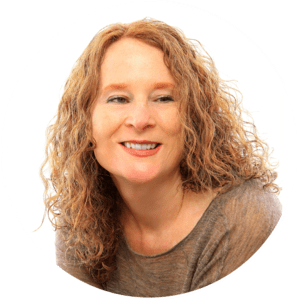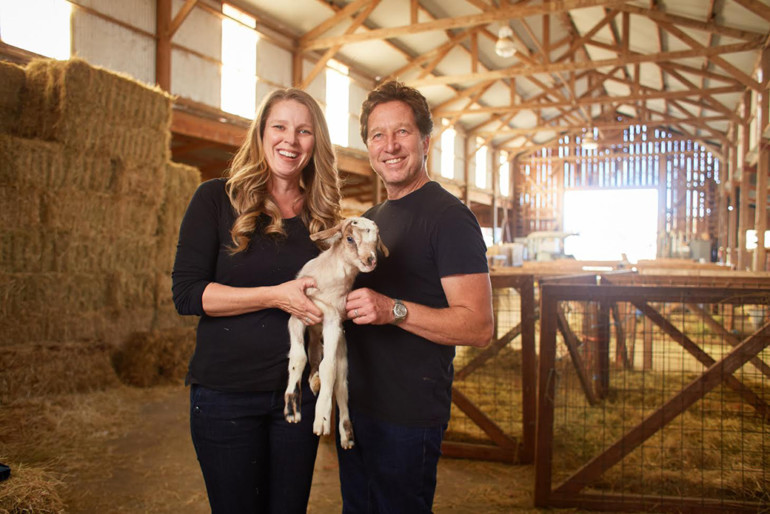Tomales Farmstead Creamery, based on Toluma Farms, has been producing artisanal goat and sheep cheeses since 2013. The farm is home to more than 100 East Friesian sheep and six breeds of goats, numbering 200 in total – each of which they can identify by name.
MM: How did you become interested in cheesemaking?
TH: We have a passion for agriculture land protection, which is why we purchased the farm in 2003. We love restoring land, buildings, and cars, and so it made sense to bring the old cow dairy back to life. We decided on goats, since we were first-time farmers, and they were the closest animals to dogs! We sold the milk to Redwood Hill Farm & Creamery for years, but knew that to make the operation financially sustainable, we needed a value-added product, and since we love cheese that was an easy decision!
MM: What are your background(s)?
TH: I (Tamara) am a psychologist with a background in nonprofit (not that different from a small scale farm). David is a cardiothoracic surgeon at UCSF. Due to our backgrounds in mental and physical well-being, from day one our farm’s mission has been to educate all folks about the importance of eating good food locally and knowing your farmer. We welcome kids and adults onto the farm to learn about organic lands, pasture management, animal husbandry, and, of course, cheesemaking.
MM: Why goat and sheep cheese?
TH: Mostly because goat and sheep cheeses are our favorite, and when we traveled to Italy and France, these were cheeses we absolutely loved! Being female and having a predominantly female farm team, goats and sheep are physically easier to manage than cows or buffalo.
MM: Which European cheeses serve as inspiration for your cheese?
TH: La Tur from Italy inspired us to make Teleeka, our signature triple milk-cow, sheep and goat cheese, and fresh farmers goat cheese sold at the farmers markets in France inspired us to make Liwa, our fresh goat cheese. We just started making a traditional Greek style feta (sheep/goat in spring and summer, and all goat in the winter).
MM: What are the qualities of West Marin that are conducive to cheese making?
TH: So many things: Temperate climate for cheese aging, having animals on pasture, coastal fog for grass growing, and an abundance of water. There is also an incredibly supportive food and agriculture community of people and organizations, such as Marin Agricultural Land Trust, Marin RCD, and UC Extension.
MM: Most of your cheese makers are women – is this merely a coincidence? Does this play any role in shaping your business approach and philosophy – and if so, how?
TH: I feel a responsibility to ensure that the next generation of women are educated, encouraged, and empowered to take on the challenges of meeting the world’s growing food, fuel, and fiber needs. Women have been producing food since the beginning of time, but often historically have been relegated to a powerless and voiceless position. We believe that women need to play a crucial role in solving the big problems before us, such as climate change and food insecurity. Additionally, dairies are 99 to 100% female animals, so who better to understand the animal husbandry needs of our 300 does and ewes?

Lynda Balslev is an award-winning food writer, editor and recipe developer based in the San Francisco Bay area. She authors the nationally syndicated column and blog TasteFood, and co-authored the cookbook Almonds: Recipes, History, Culture (2015 Silver Medal Winner Independent Publisher Awards). She is the 2011 recipient of the Chronicle Books Award (Recipe Writing) to the Symposium for Professional Food Writers, and a 2018 Fellowship Award recipient to the Symposium for Wine Writers at Meadowood, Napa Valley. Lynda’s writing and photography have been recognized by the New York Times Diners Journal, the Los Angeles Times, The Huffington Post and more.


